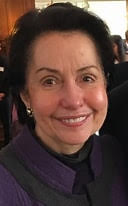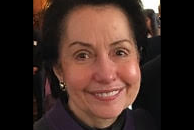From the Writers House in the Department of English to literary art magazines and the opportunity to minor in creative writing, poetry thrives on Case Western Reserve University’s campus. April is National Poetry Month, and The Daily is putting the spotlight on members of the university community who are passionate about expressing themselves through this art form.

Today we’re featuring Laura Tartakoff, senior instructor in the Department of Political Science at Case Western Reserve. A Cuban-born American raised in Puerto Rico, Tartakoff has worked at the university since 1994. Tartakoff, whose research interests include constitutional law, civil liberties, dictatorship and democracy in modern Latin American and more, believes poetry “addresses what one in silence carries within.
“Poetry,” she said, “is often an oxygen tank.”
1. Can you share one of the poems you’ve written and talk a bit about it—what inspired it?
Three Gifts
The humble fortitude
of a pearl
at the bottom of the sea,
of the girl
selling matches
in the street,
of the holly berries
that every morning
show themselves
in winter
through my window
The tiny warm color of holly berries in the snowstorm…children willing to live despite suffering…pearls forever lost in any ocean…all three teach courage and humility.
2. Where do you draw inspiration in general?
From memories and nature, I draw inspiration.
3. Who are some of your favorite poets and why?
Some of my favorite poets are Walt Whitman and Denise Levertov in English, and Jorge Luis Borges.
4. When did you first get started doing poetry?
I started doing poetry in elementary school in Puerto Rico. As a child refugee from Cuba in Puerto Rico, in third grade I was introduced to poems by Gabriela Mistral. Then in seventh grade, thanks to my teacher Sister Vera, I was introduced to Walt Whitman’s “Oh Captain, My Captain,” which led me to discover that English and Spanish are both musical languages.
5. Why do you love poetry? Why should others?
Because, as Octavio Paz said, “poetry is the bridge suspended between history and truth … it is to see the stillness within movement, transition in stillness.”

